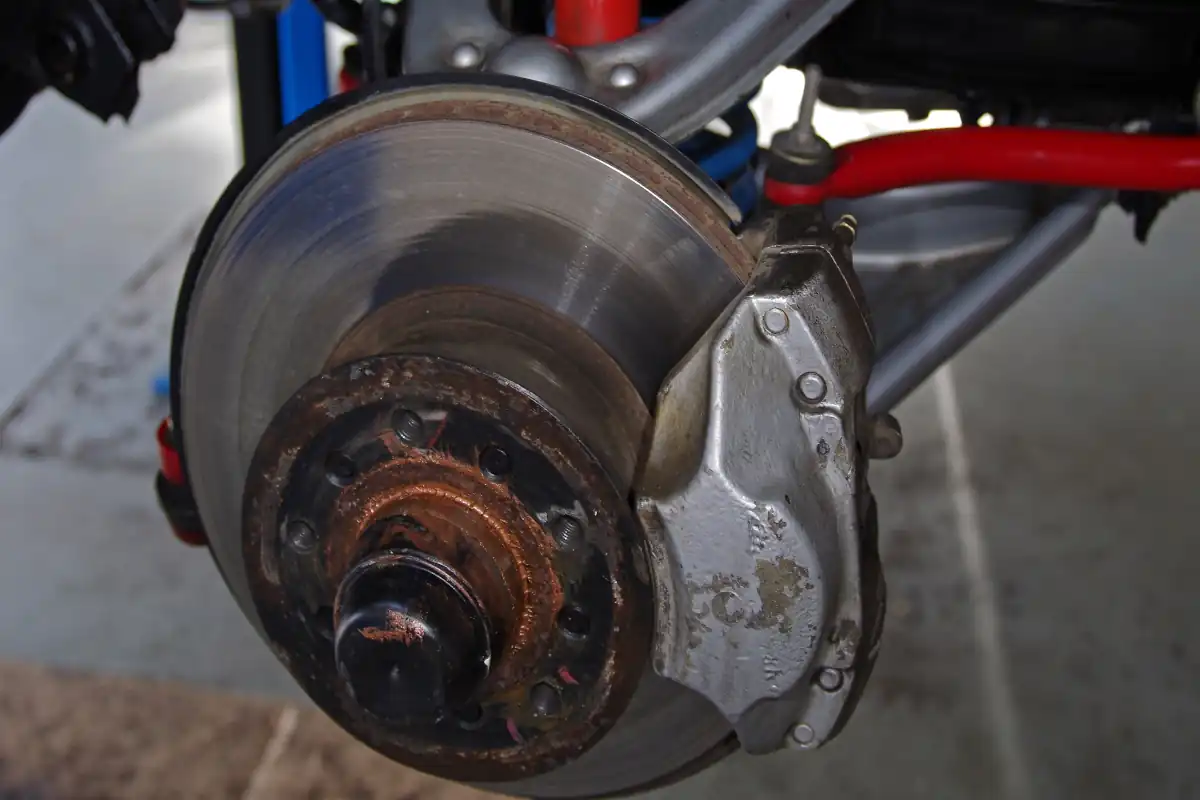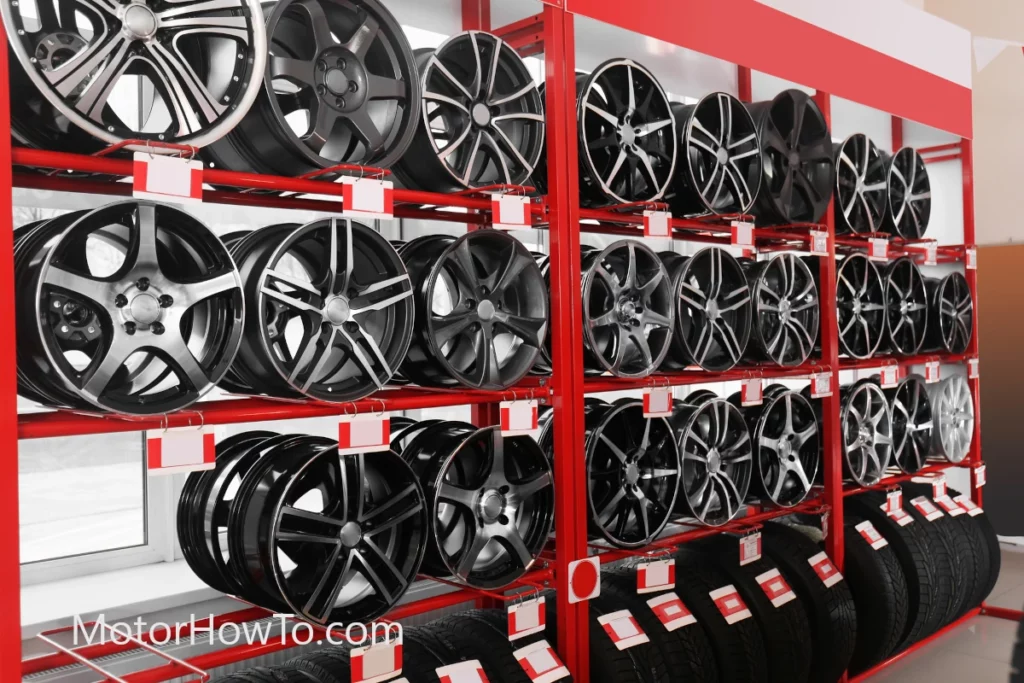Changing your brake pads can be something that is regular for some people because of how banged up their brakes are. However, most people know that exposing the brake fluid to air when the brake lines are opened can cause problems with your brakes.
Considering that changing the brake pads may require the brake lines to be opened, does that mean that mechanics bleed your brakes after they change your brake pads?
Here’s why mechanics could bleed brakes when changing pads
Bleeding your brakes is not necessary when you are changing brake pads. It depends on how the brake pads were changed and what needed to be changed in the brake system because some changes may require the brake lines to be opened. If the brake lines were not opened, bleeding the brakes is not necessary.

The most important factor to look at is whether or not the brake lines were exposed to open air because this allows the brake fluid to absorb extra moisture, which may end up causing problems to how the fluid works.
As such, it is important for you to understand how the system was handled so that you would know whether or not bleeding the brakes is necessary.
Do mechanics bleed brakes when changing pads?
Having your brake pads changed by your mechanic can be something that is routine to you, especially if your car is always banged up with how often you use it or push it to the limit.
Now, when it comes to having your brake pads changed, the way that the mechanic does this may depend on how the brakes are constructed.
But, regardless of how the brake pads are changed, is it necessary for the mechanic to bleed the brakes after changing the pad?
No, it is not necessary for the mechanic to bleed the brakes when changing pads. That is because there are some instances where the pads can be changed or replaced without opening the brake fluid reservoir or the brake lines themselves.
For instance, when changing the brake pads, you may only need to retract the pads or caliper piston, and the fluid gets pushed back towards the master cylinder. Doing so will decrease the pressure that you or a mechanic has to work with when replacing the brake pads.
But there are also instances where the brakes may require bleeding after the brake pads were replaced. Such instances almost always relate to the brake lines or the brake fluid. When the brake lines are opened or the brake fluid reservoir gets exposed to air for a long time, there might be a need to bleed the brakes after.
For you to understand this, you need to know that the brake fluid is what sends the pressure from the brake pedal to the brake pads for them to clamp on the rotor. The pressure travels through the brake lines through the brake fluid that comes from the reservoir.
If you are not working with DOT 5 brake fluid, you should know that any kind of brake fluid can absorb moisture easily. When the brake fluid reservoir is opened, extra moisture can get to the brake fluid through the air. There are some instances where mechanics open the brake fluid reservoir to relieve the pressure on the brake pads. And air can also pass through the brake line and fill the extra space with air or even expose your brake fluid to moisture.
When the brake fluid is mixed with water, it is less effective precisely because of how water has a lower boiling point. The extra moisture in the brake fluid can create gas bubbles that will fill the brake lines and make it harder for the brake system to apply pressure to the brake pads. If your brakes feel spongy, then this could be the reason why that is happening. As such, you have to make sure that you do not expose your brake line or brake fluid reservoir to air and excess moisture.
Going back, when the brake pad change requires the brake fluid reservoir to be opened or for the brake lines to get exposed, there is a need for you to bleed the brakes after so that you can flush the excess air and the old brake fluid out of the system.
So, the point here is that, while there is no need to open the brake lines or the brake fluid reservoir when you are changing your brake pads, there are still instances where that can be required. But if there is no need for the mechanic to open the brake lines or the brake fluid reservoir, then there is no need to bleed the brakes after. The important factor to look at here is whether or not the brake fluid was exposed to air.
How to bleed brakes after changing pads?
If you want to bleed the brakes yourself, here is what you need to do:
- Look for the bleed valve or nipple found on the brakes
Every brake caliper should have a bleed valve or nipple. This is usually found at the bottom of the caliper. But it is best to refer to your owner’s manual if you want to know where the bleed nipple is.
- Open the valve
The valve or nipple isn’t necessarily quite easy to open. You may need to find a tool that can open it. Sometimes, a flathead screwdriver will do the trick. From there, make sure that you use a catch pan to catch the brake fluid that you will be draining from the brakes. You would also need to ready the new brake fluid that should replace the old brake fluid in the system.
- Bleed the brakes
Remove the cap of the master cylinder and then undo the bleed valve or nipple on the brakes. From there, you can allow gravity to do the trick, as the positioning of the bleed valve will simply allow the old brake fluid to get expelled. However, you can also use a pressurized brake fluid container to force the fluid open. But the easiest way to expel the fluid is to press your brake pedal because it applies pressure to the brake lines.
- Refill
Once you have expelled the brake fluid, you would need to refill the system with a fresh batch of fluid. You need to pour the liquid into the master cylinder or the brake fluid reservoir while making sure that the fluid reaches the maximum level. When you notice that the brake fluid is coming out of the bleed nipple, press the brake pedal a few times to expel the last drop of the old brake fluid. From there, make sure that the fluid is at the maximum level before you close the bleed valve on the brakes.
How much do mechanics charge to bleed brakes?
If you don’t want to do the job yourself, you can always ask the mechanic to bleed your brakes for you. The cost of bleeding the brakes will vary depending on your car and your location. However, the usual rate can be somewhere between $75 to $100. This can be more expensive for cars or on the higher end of the price spectrum.
Sources
Is bleeding brakes needed after pads replacement?
How to Bleed Your Brakes the Right Way
Changed Brake Pads, Didn’t Bleed Brakes, OK?
When changing brake pads and rotors, do you have to bleed the brakes or open the master cylinder?



